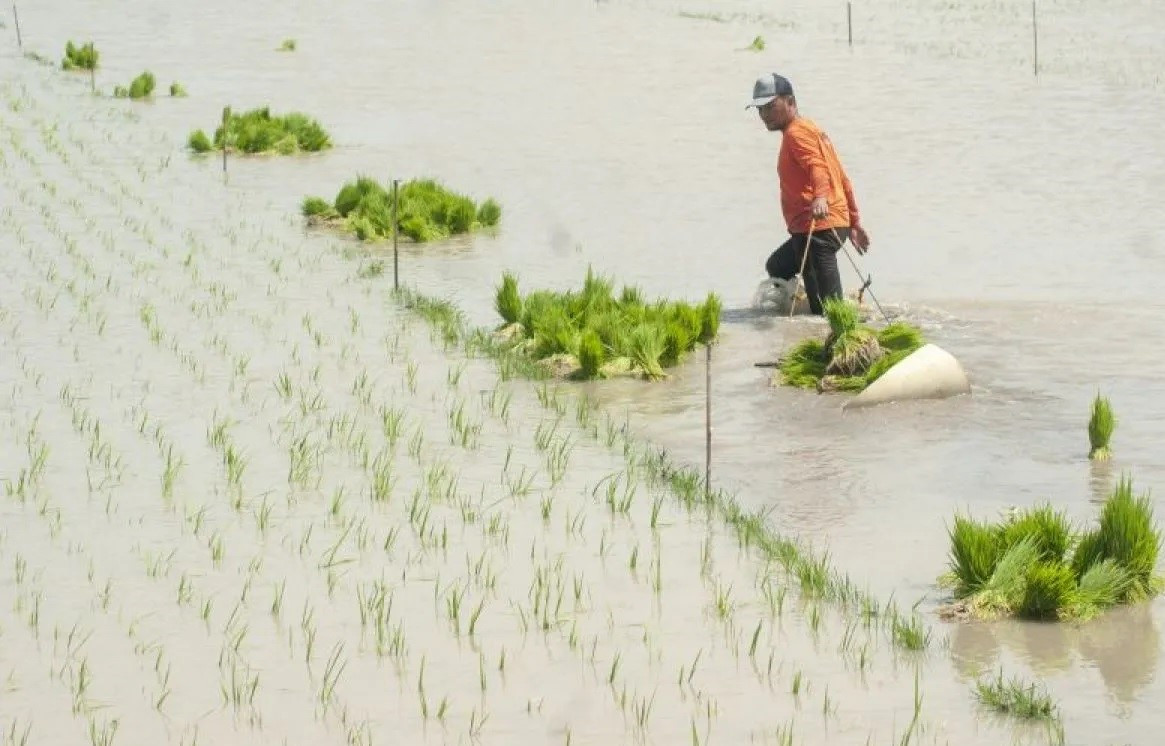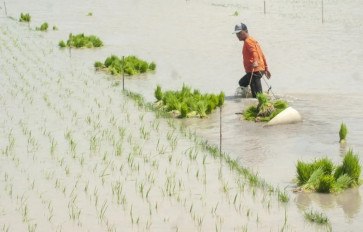Popular Reads
Top Results
Can't find what you're looking for?
View all search resultsPopular Reads
Top Results
Can't find what you're looking for?
View all search resultsGrowing rice as an intercrop in oil palm estates to secure food security
We see a big opportunity for paddy field expansion, which will be created by the recent government decision to increase the replanting of smallholders’ oil palm estates to 250,000 hectares a year.
Change text size
Gift Premium Articles
to Anyone
C
limate change has been significantly impacting the rice-cultivation pattern. Worse, the weather phenomenon El Nino caused a prolonged dry season that forced farmers to delay planting last year. Such natural occurrences have not only delayed the annual rice harvest but also reduced rice production in Indonesia by 1.4 percent.
The government has so far resorted mostly to ad hoc measures to address the rice deficit and to prevent domestic rice prices from rising steeply but at the expense of the farmers. Indonesia last year imported around 3.3 million tonnes of rice and issued licenses for importing another 3.6 million tonnes this year.
Such a contingency program is justified given the role of rice as the main staple food for Indonesia’s 270 million people and the heavy weighting of this commodity in the consumer price index (inflation). The increase in rice prices and the scarcity of rice stocks over the last few weeks are indeed worrisome, especially as we approach the annual celebrations of Ramadan and Idul Fitri, when a simultaneous rise in prices of several food items usually happens.
But such ad hoc measures are not sustainable in the long term. Still worse, greater imports leave us vulnerable to the volatile rice prices in the international market, especially because there are only a few rice exporters in the world, notably Thailand, Vietnam and Myanmar.
Hence, the most effective way to achieve sustainable rice self-sufficiency is by increasing domestic rice production. The problem is that paddy fields in Java, which account for more than 55 percent of the national rice output, have steadily decreased
The 2023 agricultural census found that over the last 10 years, the number of individual agricultural holdings, declined by 2.36 million units (7.45 percent), from 31.71 million units in 2013 to 29.34 million units in 2023. If this trend continues, it will be a serious threat to our future food security.
The census also discovered a significant increase in the proportion of agricultural households managing less than 0.2 hectare of agricultural land in the last 10 years. As a consequence, the number of agricultural households with limited access to land sharply increased by 2.64 million households (18.54 percent) from 14.25 million households in 2013 to around 16.89 million households in 2023.



















